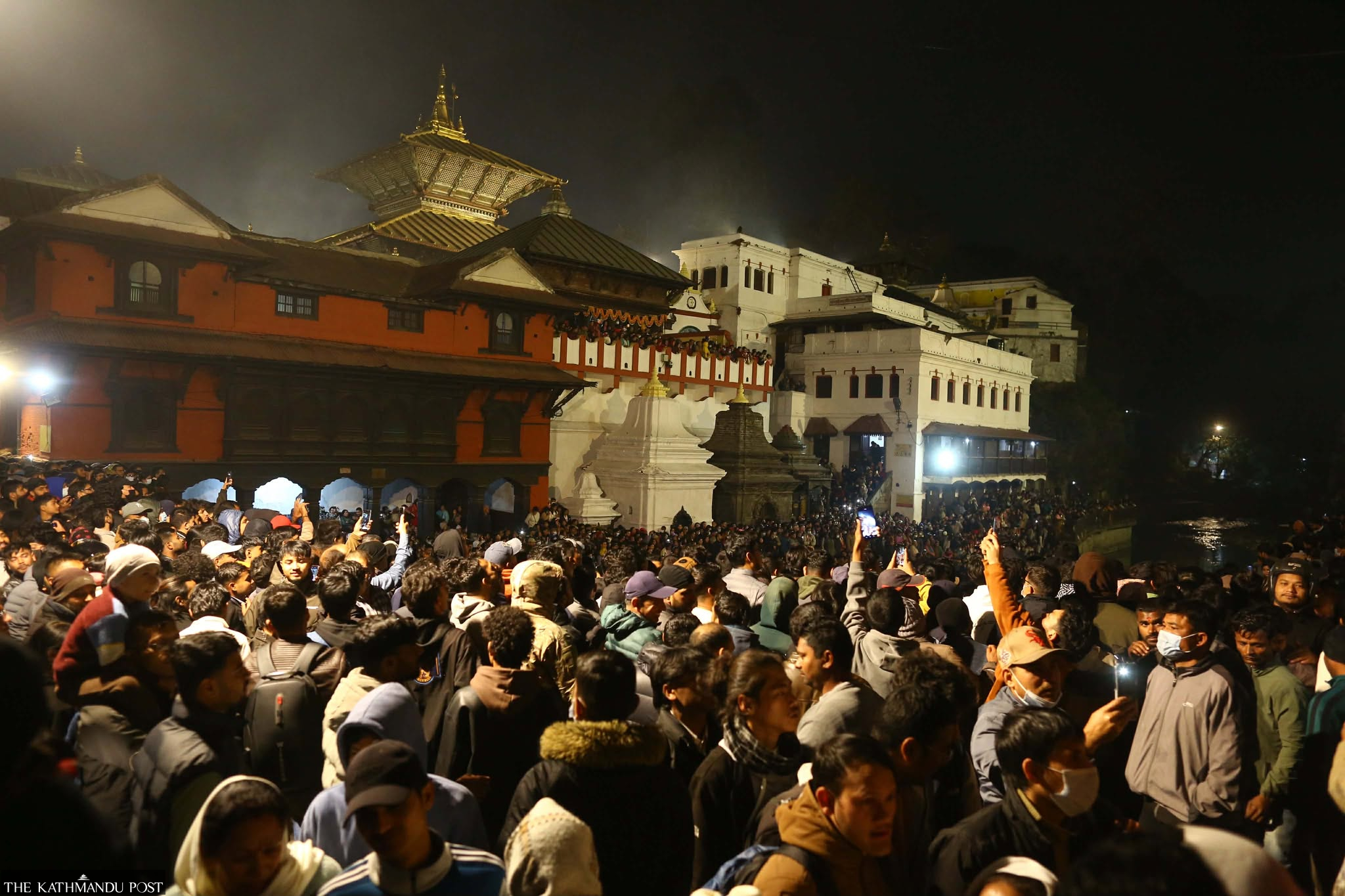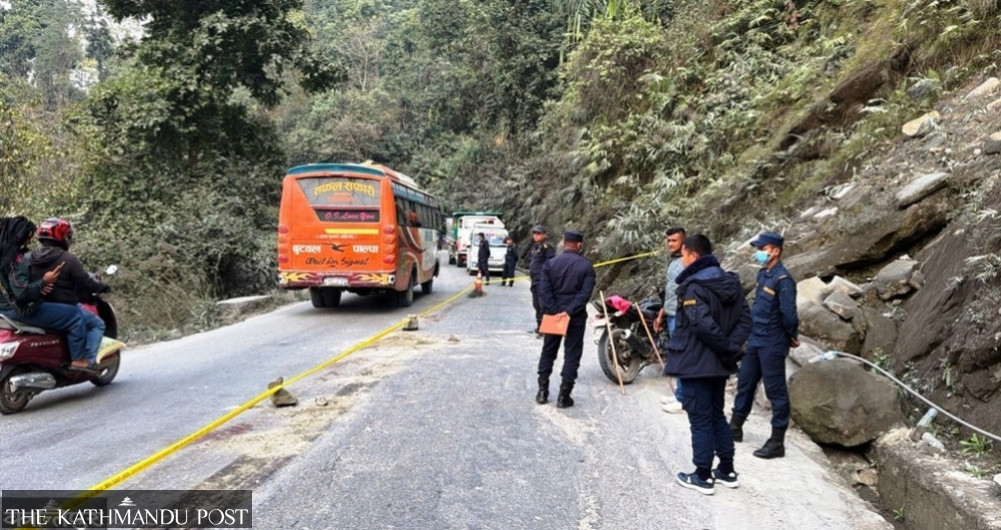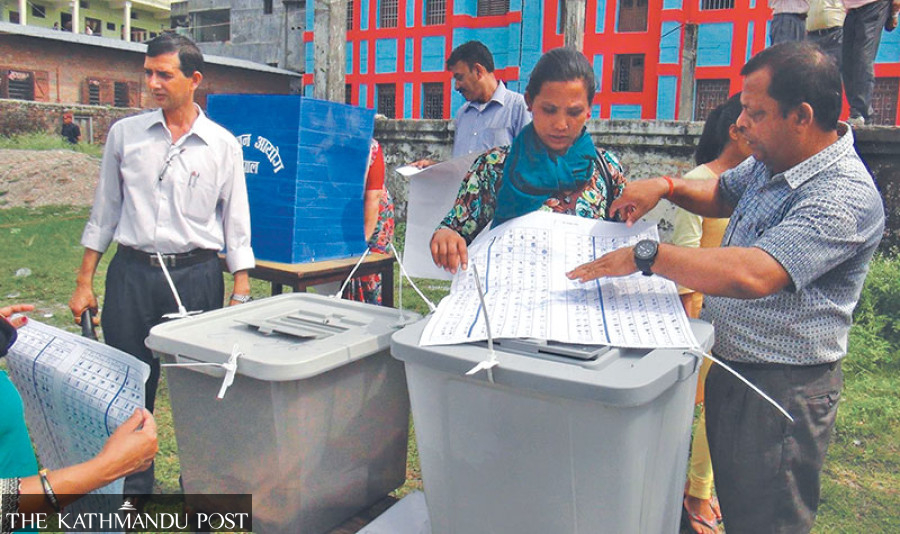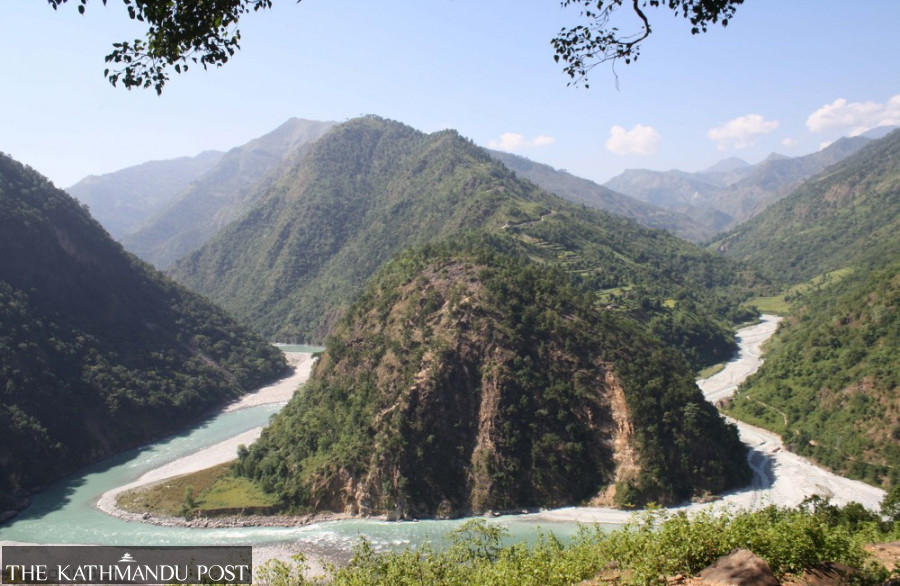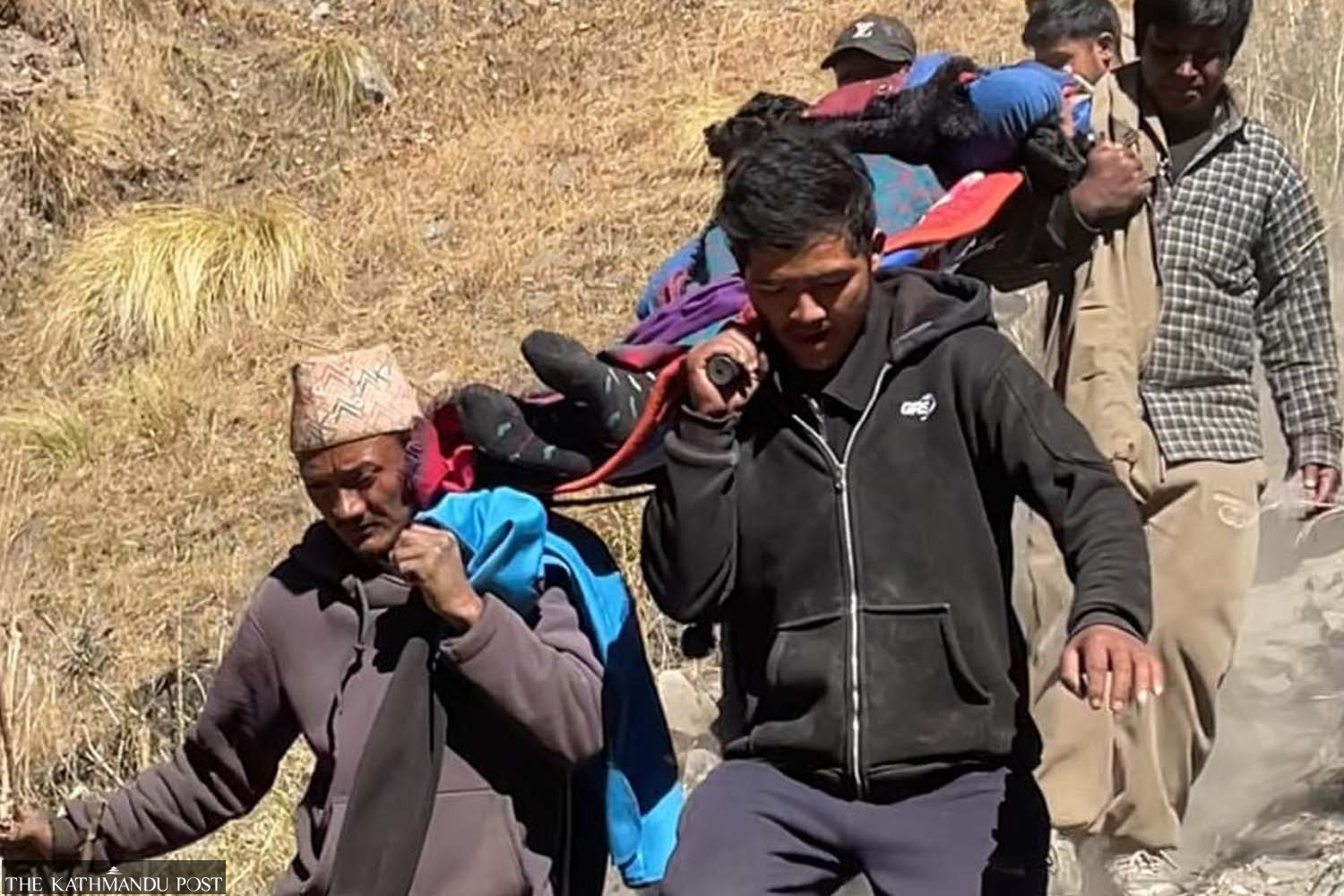National
Menstruating women are still being banished to outdoor sheds—and it’s killing them
Despite being outlawed by the Supreme Court in 2005, Chhaupadi is still widely prevalent in the country. More than 70 percent of women in parts of mid-western districts still practise Chhaupadi, according to the 2014 Multiple Indicator Cluster Survey findings.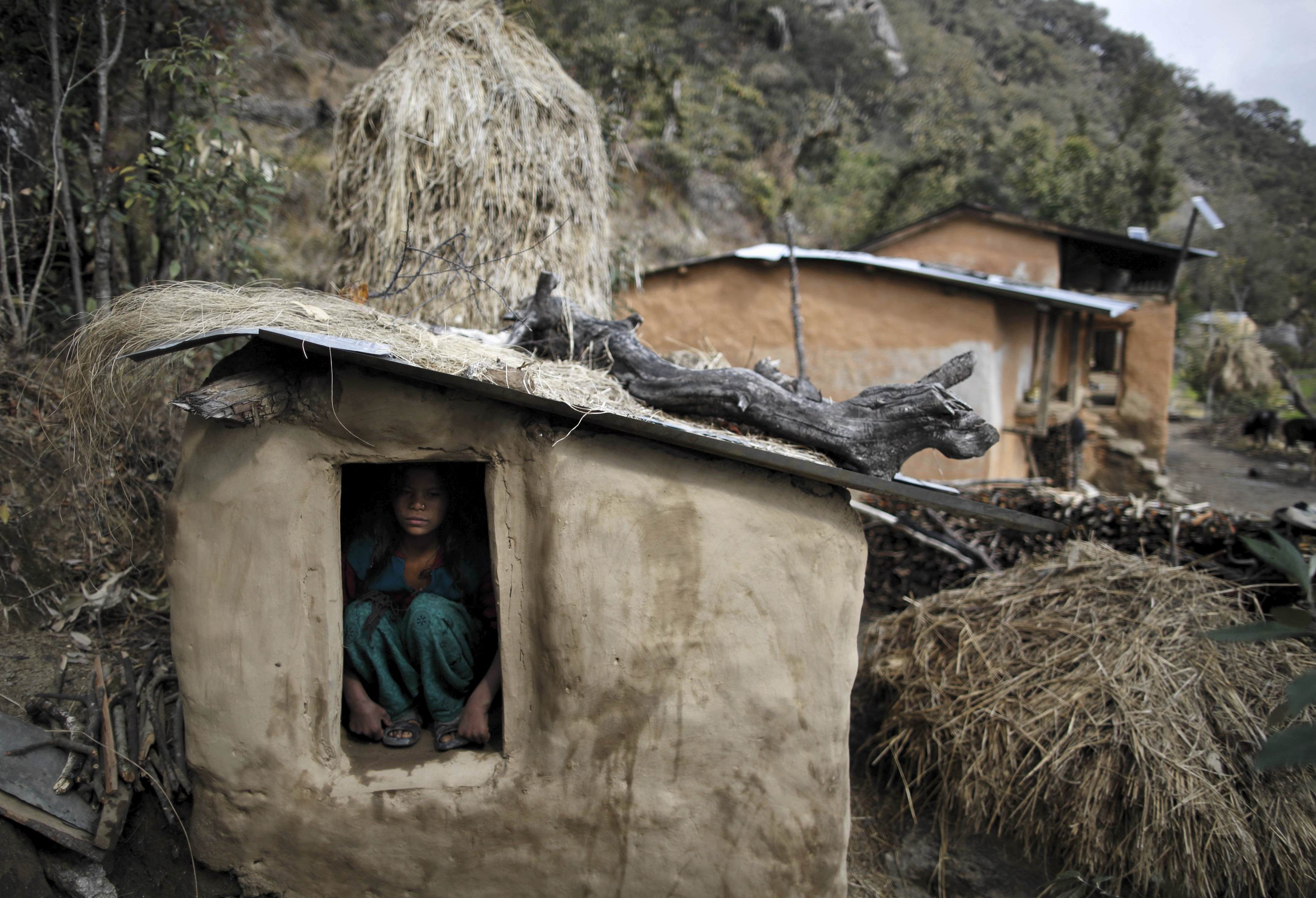
When Hari Singh Thapa and Amar Sunar went to file a complaint at the Dailekh District Police Office regarding the deaths of two local women who had died inside a shed, the police refused to entertain their request.
The police, according to Sunar, mocked them, saying, “Go, bring the snake that bit the woman and then we can register your complaint.”
The police’s response, Sunar says, is representative of the attitude prevalent among local authorities who do not consider Chhaupadi—the practice of banishing women to sheds and huts during their menstruation—to be a grave social ill and refrain from taking action.
“None of the authorities in the district has shown any interest in tackling Chhaupadi,” says Sunar. “No one wants to take the lead in holding those who are guilty accountable for the women’s deaths.”
The women: Tulasi Shah, 19, died in July 2017 after being bitten by a snake while banished to a chhau goth—essentially animal sheds. Ninth grader Lasari BK died in May the same year after contracting a severe cold-related illness while staying in a similar hut.
 Dhuna Devi Saud prepares to sleep inside a Chaupadi shed in the hills of Legudsen village in Achham District.
Dhuna Devi Saud prepares to sleep inside a Chaupadi shed in the hills of Legudsen village in Achham District. All photos by Navesh Chitrakar / REUTERS from 2014.
BK and Shah are just two names in a growing list of women who have lost their lives to Chhaupadi, an ancient practice which has its roots in the Hindu belief that menstrual blood is impure, thereby making menstruating women impure.
Despite being outlawed by the Supreme Court in 2005, Chhaupadi is still widely prevalent in the country. More than 70 percent of women in parts of mid-western districts still practise Chhaupadi, according to the 2014 Multiple Indicator Cluster Survey findings.
Most women in Nepal were more likely to face moderate forms of discriminatory practice, the same survey found. Nearly 60 percent women do not take part in social gatherings while they are menstruating, the survey found. A quarter of the women isolated themselves in a different room at home during period and nine percent said they bathed in separate places.
In its most extreme form, as practised in the hills of far-western Nepal, menstruating and new mothers are banished to chhau goths to live in isolation, barred from touching food, family members, cattle and religious idols.
 A family member offers food to women practising Chaupadi, without touching the dish or the women.
A family member offers food to women practising Chaupadi, without touching the dish or the women. Again, in 2017 Nepal’s parliament criminalised the practice, endorsing a new law, which states that anyone found guilty of forcing a woman to follow Chhaupadi is subject to a three-month jail sentence or a Rs3,000 fine, or both.
But with no implementation mechanism in place and a lack of commitment from local leaders, experts say the legislation has remained ineffective.
“We have the law but no implementation mechanism has been put in place,” says Sama Shrestha, programme specialist at UN Women in Nepal.
Since the law was enacted, seven women have lost their lives to Chhaupadi. Most of them died from suffocation after lighting a fire to keep themselves warm in their windowless huts. Temperatures during the winter in the hills and mountains of the far west, where most of these women lived, can fall well below zero degrees Celsius.
In many districts, local representatives, civil society leaders, politicians and individuals responsible for enacting social change have themselves been found to be practising Chhaupadi.
“I don’t want to hurt the feelings of my father-in-law and mother-in-law,” Nirmala Bista, a village council member of Thalara Rural Municipality in Bajhang, told a Post reporter last month when asked why she continued to stay in a chhau goth while she was menstruating.
A recent study by the National Human Rights Commission (NHRC) on Chhaupadi states these very realities as the main reasons why no individual has been prosecuted to date for enforcing the practice.
“It’s hard for a woman to go against her family’s wishes and then file a police complaint knowing she will have little to no support from society,” says Ashma Shrestha, a communication officer at UN Women.
Local governments’ apathy for fighting Chhaupadi can be seen through how they have budgeted for social programmes.
In Dailekh, where three women have lost their lives to Chhaupadi in recent years, local leaders say they have no money to give to programmes. None of the 11 local governments has set aside any budget for programmes devoted to ending Chhaupadi.
“Even with women in leadership positions, there’s been no initiative from the government to work on ending this practice,” says local resident Basana Thapa.
Amid such lassitude, Shristi Regmi, deputy mayor of Bajura’s Budinanda Municipality, may be an anomaly.
Earlier this year, the municipality was rocked by news of the deaths of Amba Bohara and her two children.
Bohara, 35, and her two sons, Ramit, nine, and Suresh, 11, were found suffocated to death—their bodies charred from the fire that had engulfed the hut they were living in because Bohara was menstruating. She had taken her children with her as her husband was away in Malaysia and there was no other family membe to take care of the children.
Their deaths brought a moment of reckoning for the villagers, especially for the young deputy mayor of Budinanda.
“Amba and her children’s deaths instilled a sense of urgency in all of us,” says 26-year-old Regmi. “We knew we had to act if we didn’t want any more Ambas dying.”
While Regmi had been attempting to propose strict policies to combat Chhaupadi in her constituency since her appointment in 2017, she was met with resistance from fellow officials, she says.
“Leaders were afraid to take a strong stand on this issue because they feared public backlash,” says Regmi. “They worried about how it would affect their electoral performance.”
This time, though, she was able to garner support from her colleagues at the municipal council office. Last month, Regmi announced the municipality’s decision to halt all services offered by the office to those constituents who observe Chhaupadi or force others in their household to do so.
The decision resulted in the destruction of 130 chhau goths in Budinanda in less than a month, says Regmi. And she expects this number will only rise as news about the municipality’s decision spreads farther.
“If our initiative is a success, then other municipalities can use it as a model,” says Regmi.
While experts commend Regmi for her strong stance against Chhaupadi, they believe that without a longer-term approach, such initiatives will not be successful in eliminating this deeply-rooted practice.
“In the past too, there have been similar campaigns where chhau goths were destroyed and villages declared Chhaupadi-free, only for the practice to return once the attention subsides,” says Ashma Shrestha of UN Women.
In Achham, where the practice is the most prevalent, 21 out of 56 VDCs have been declared chhaupadi-free. Both government and non-governmental organisations invested much in the drive to declare these villages free of chhaupadi, but locals say the declaration has remained a mere announcement and hasn’t resulted in any behavioural change.
 Rupa Chand Shah, 32, a school teacher who does not support the practice of Chaupadi, teaches an awareness class at Shree Devi Mando School in Legudsen.
Rupa Chand Shah, 32, a school teacher who does not support the practice of Chaupadi, teaches an awareness class at Shree Devi Mando School in Legudsen. “Activists and leaders spent day and night destroying huts in order to be able to declare these villages chhaupadi-free,” says Shankar BK, president of a local youth club in the district. “But the reality is that women have continued to isolate themselves during their periods. Instead of mud huts, they’re now staying in shelters made from flimsy plastic material.”
Until the women living in the district and observing the practice themselves take charge of the movement eliminating Chhaupadi, the custom will never be eradicated from Achham, says Kareena Rawal, a local.
“What’s needed is a holistic approach, one that takes into account all the factors that contribute to promulgating the practice and then work towards countering them,” says Sama Shrestha.
Writer-activist Radha Paudel, who was exposed to the practice while growing up in Chitwan and then later working as a nurse in Jumla, agrees.
“Destroying huts will not get rid of this social ill,” Paudel says. “There should be a more comprehensive approach that is able to get to the heart of the issue: every idea and belief about impurity surrounding menstruation needs to first be uprooted.”
Paudel also believes the discussion on Chhaupadi—although she doesn’t like the term—should go beyond just focussing on menstrual discriminatory practices in the far west.
“Some sort of Chhaupadi is being practised all over the world wherever Nepalis are living, regardless of caste, class, education,” says Paudel. “In Achham, women are banished to huts. In Kathmandu, they are confined to a private space. The principle is the same in both cases: menstruating women are impure and need to be isolated from their surroundings.”
Until Nepali society as a whole begins acknowledging this truth and works towards unpacking cultural and religious beliefs that have directly resulted in such a social ill, Paudel says, Chhaupadi can never be defeated.
Infographic: Timeline showing deaths of women while being banished to menstrual huts in Nepal

 Yagraj Bhul, 38, poses for a photograph, as he holds a portrait of his daughter who died while practicing Chaupadi.
Yagraj Bhul, 38, poses for a photograph, as he holds a portrait of his daughter who died while practicing Chaupadi.  Legudsen Village, where many woman practice Chaupadi.
Legudsen Village, where many woman practice Chaupadi.Jyoti Katuwal from Dailekh and Menuka Dhungana from Achham contributed to this report.




 20.12°C Kathmandu
20.12°C Kathmandu
